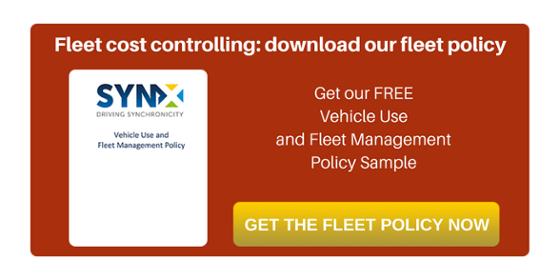
Fleet cost controlling is a source of considerable pressure for fleet managers, whether they are young or seasoned, whether they are managing a small or large operation; sometimes, especially in SMEs, it’s a role directors or company owners have to carry out in addition to all their other responsibilities.
Operating a company-provided fleet is very expensive as the fleet is typically in one of the top five categories of non-product-related spending for most corporations. But sometimes the quickest fix for this is to control costs on the back end, though it doesn’t mean it is the best one. Controlling costs before they occur should be the option to go for. With that in mind, companies should establish procedures and policies that protect assets and avoid spending, and eventually follow fleet management best practices in terms of safety and maintenance.
Here is where fleet policies help cost controlling:
Establishing a fleet policy is an additional and very effective way to control expenses, avoid inefficient behaviours as well as enforcing policy which is updated for drivers and the company: a policy must not sit on a shelf, but be shared with all employees, and everyone should know the rules governing the different items. The policy should be at least annually reviewed and reworked to reflect any possible changes within the organisation; and during the review, outdated material should be eliminated and staff should be given the opportunity to express their opinion on it.
All departments involved in fleet management should also be involved in the creation of the policy; this way you can make sure the policy includes all necessary points and everyone will support it at the same time. It is important that fleet managers have the support of senior management but also that other departments participate.
Just because your company has a documented fleet policy doesn’t mean drivers are following it—communicating fleet policy is not a one-off event. Fleet managers have the responsibility to promote fleet policy. To ensure fleet policy remains uppermost in the minds of drivers, many companies stress the need to regularly reiterate it to them. When policy is constantly reiterated, you spend less time disciplining drivers for policy infractions.
No policy can anticipate all possibilities—consistency in dealing with all the drivers assigned company vehicles at different locations is essential. To accomplish this, it is crucial for senior management to give the fleet manager the appropriate authority to address driver infractions and deal with the department-assigned vehicles. This will go a long way toward reducing, and sometimes eliminating, driver infraction issues.
Fleet policies not only control expenditures and play a paramount role in fleet cost controlling, but they also protect your company from potential liability exposure.





